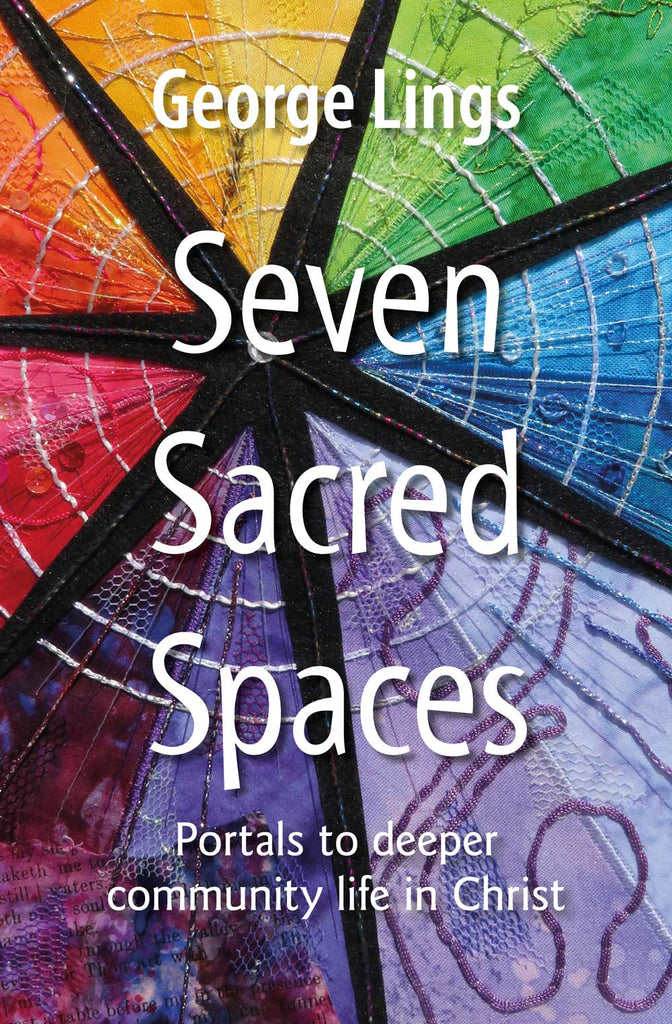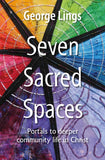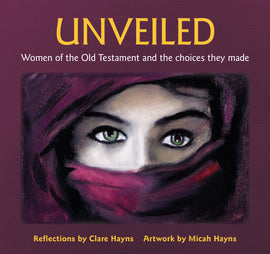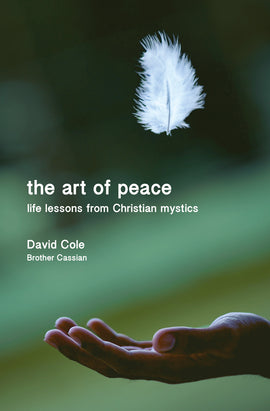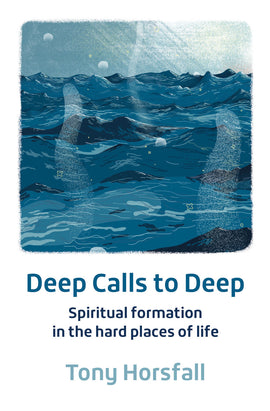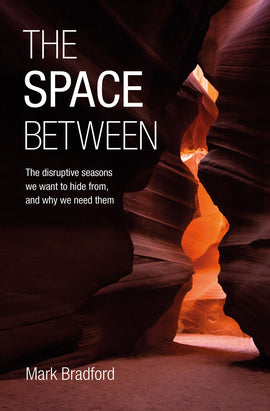Seven Sacred Spaces: Portals to deeper community life in Christ
Applying monastic principles to deepen spiritual experience today
Too often people’s understanding of and engagement with ‘church’ is reduced to corporate worship, when it is so much more. George Lings identifies seven characteristic elements in Christian communities through the ages, which when held in balance enable a richer expression of discipleship, mission and community.
Support Materials - Free materials for groups, meet-ups and individuals
| Title | Seven Sacred Spaces: Portals to deeper community life in Christ |
| Author | George Lings |
| ISBN | |
| Description | Too often people’s understanding of and engagement with ‘church’ is reduced to corporate worship, when it is so much more. George Lings identifies seven characteristic elements in Christian communities through the ages, which when held in balance enable a richer expression of discipleship, mission and community. In the monastic tradition these elements have distinctive locations: cell (being alone with God), chapel (corporate public worship), chapter (making decisions), cloister (planned and surprising meetings), garden (the place of work), refectory (food and hospitality) and scriptorium (study and passing on knowledge). Through this lens George Lings explores how these seven elements relate to our individual and communal walk with God, hold good for church and family life, and appear in wider society.
Hear more from George Lings in an interview with Fresh Expressions:
|
| Details |
|
Too often people’s understanding of and engagement with ‘church’ is reduced to corporate worship, when it is so much more. George Lings identifies seven characteristic elements in Christian communities through the ages, which when held in balance enable a richer expression of discipleship, mission and community.
In the monastic tradition these elements have distinctive locations: cell (being alone with God), chapel (corporate public worship), chapter (making decisions), cloister (planned and surprising meetings), garden (the place of work), refectory (food and hospitality) and scriptorium (study and passing on knowledge). Through this lens George Lings explores how these seven elements relate to our individual and communal walk with God, hold good for church and family life, and appear in wider society.
Hear more from George Lings in an interview with Fresh Expressions:
Canon Dr George Lings has been a banker, student, vicar, writer, mentor and researcher. From 1997 to 2017 he led Church Army’s Research Unit specialising in fresh expressions of church and gaining a PhD. In 2017 he was awarded the Canterbury Cross for outstanding service to the Church of England. He now serves as a companion of Northumbria Community, vice-president of The Bible Reading Fellowship and consultant to a number of individuals and dioceses.
In weaving together ancient monastic wisdom, fresh insights from contemporary developments and the author’s rich experiences of the adventure of faith, Seven Sacred Spaces provides a valuable, timely and practical resource for all on the Jesus Way.
Steve Aisthorpe, author of The Invisible Church and mission development worker for the Church of Scotland
This book is knowledgeable, quirky and inspirational. The seven sacred spaces are drawn from their monastic roots to provide a framework for discipleship, Christian community and wider human well-being. As someone who has long inhabited the seven sacred spaces in his own discipleship, George Lings enthuses about their potential, illustrating it from the experience of a variety of contemporary expressions of church.
Sally Gaze, archdeacon for rural mission and leader of the Lightwave Community, Diocese of St Edmundsbury and Ipswich
George Lings is a radical, one who believes that we should explore the deep roots of faith if we are to live well. Seven Sacred Spaces distils the wisdom of decades of looking, listening, reflecting. Read it if you want to be a deep-rooted Christian today. I recommend it very, very highly.
Paul Bayes, Bishop of Liverpool
Here we are presented with the challenging proposal that the rhythm of monastic life with its seven sacred spaces – refectory, cell, scriptorium, chapel, garden, cloister and chapter – does not need to be confined to the monastery. Rather it can shape and enrich the lives of men and women of all ages and in all states of life.
Sister Frances Dominica OBE, DL, founder of the first children’s hospice, Helen House
This book drew me into a world of monastic spaces and monastic practices. Exploring these seven spaces, with current and historic examples, helped me to reflect on the value of these distinctive modes and ways of being church. I highly recommend Seven Sacred Spaces to those who are interested in finding out more about monasticism and those imagining how church can develop alongside and beyond the Sunday service. It has certainly helped me to imagine how these spaces and practices could enhance discipleship, community and mission within my own context of a suburban parish church.
Revd Dr Beth Keith, Associate Vicar, All Saints Ecclesall Sheffield
George Lings is as perceptive and prophetic as ever, as he explores what the ancient idea of the seven sacred spaces means for us today. Much of this exploration comes out of George’s own experience and is all the richer for this. Whether you are thinking about your own life or your church community, this book is worth reading. There is a wealth of practical experience in this book which can bring change and transformation for you and your church.
Revd Dave Male, director of evangelism and discipleship, Church of England
In his typical thorough, imaginative and fair way, George Lings explores some essential disciplines from the ancient life and witness of the monastery, and he demonstrates how a grasp of these can radically affect how we live and witness for Christ in today’s culture. Anyone reading this will be inspired and challenged by reading George’s fascinating study of each of these sacred spaces.
Canon Michael Mitton, writer, speaker, spiritual director, and canon emeritus at Derby Cathedral
Our church and other ecclesial physical spaces are a crucial resource that we are once again beginning to value in our increasingly post-secular, post-Christendom context. I unreservedly recommend this book that draws on the story and purposes of Christians committed to radical community and Christian discipleship to reimagine church and church buildings for the reality of mission and ministry for today.
Ian Mobsby, assistant dean for fresh expressions in the Diocese of Southwark, guardian of the New Monastic Society of the Holy Trinity, and interim pioneer rector at Christ Church Southwark

